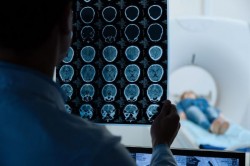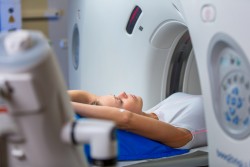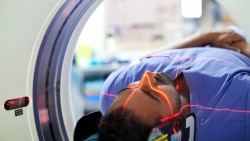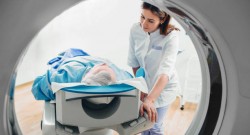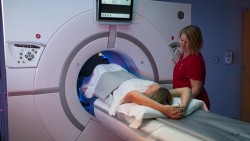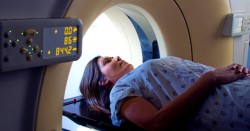How can I prepare for the exam?
If your exam requires any contrast materials, we ask that you fast for 3 hours prior.
What happens during the CT scan?
You will be asked to lie on top of a table which is slowly moved into the large, donut-shaped opening of the scanner. Once you are inside the scanner, a series of x-rays creates hundreds of cross-sectional pictures that represent slices of your body. In seconds, the computer assembles the slices into images that are interpreted by your physician.
The exam will take between 45 seconds and 1 hour, depending on the area being imaged.
Do I need a creatinine blood test before my exam?
If your exam involves intravenous (IV) contrast materials, you may need a creatinine blood test beforehand. IV contrast materials are considered extremely safe. However, patients with poor kidney (renal) function may experience adverse side effects. Elevated serum creatinine levels indicate poor renal function.
For your well-being, we require creatinine blood test results from patients who:
- Are over the age of 60; or
- Have high blood pressure; or
- Have diabetes; or
- Have pre-existing kidney (renal) disease.
- Results must be less than 3 months old.
Is a CT scan safe?
Yes. The radiation dose is very small and comparable to the natural background radiation we are constantly exposed to. The benefit of an accurate diagnosis far outweighs the small risk. However, please disclose to us if you are or may be pregnant in order to avoid radiation exposure to the fetus.
Is the contrast material safe?
Yes. Patients rarely have allergic reactions to the contrast material. The contrast material will be eliminated by your body’s natural processes, so staying well-hydrated both before and after your exam is recommended. If you are a nursing mother, however, please wait 24 hours before breastfeeding.
Further questions?
We want to help guide you through every step of the process, so if you have any further questions or concerns about your exam, please feel free to contact us at (702) 550-2748.
Schedule
